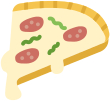10 Nutrition Mistakes You Don’t Even Know You’re Making
10 Nutrition Mistakes You Don’t Even Know You’re Making
Share
We’ve identified 10 nutrition mistakes you don’t even know you’re making every day. But fear not, we’ve also got some simple ways you can make adjustments to avoid them, and incur high health yield returns instead.
– Dr Emma Kirke Ostm
 Drinking Fruit Juice
Drinking Fruit Juice
You might think you’re being healthy, but be aware that some of the brands are boosted with unnecessary sugars and man-made chemicals that can seriously affect your health. Even if you select a brand that says ‘100% pure fruit juice’, it can still – astoundingly – contain the same amount of sugar as a glass of your favourite fizzy drinks. On top of that, you’re consuming the fruit without the fibre. The best bits of the fruit have essentially been left out of the product, leaving you with the rapidly digestible sugar. My tip? Avoid them.
 Not Reading Food Labels
Not Reading Food Labels
Be honest; how many of you actually take the time to read the labels on products? Do you actually just look at the front of the packet and assume the product is as it appears? Products, and packaging, can be misleading. For example, if it has added omega 3’s, it neither makes the product healthy nor does it make up for the high quantity of sugar contained. Take the time to read what you’re eating.
 Not Focusing On Real Or Unprocessed Foods
Not Focusing On Real Or Unprocessed Foods
We live in a modern world of pre-made and processed foods. I appreciate this can assist with our fast moving world of convenience, but food in its original form hasn’t had nutrients interfered with or removed. If you can include as many in your diet as possible, your intake of micronutrients will inevitably be more complete.
 Not Eating Enough Protein
Not Eating Enough Protein
This is one of the biggest nutrition mistakes I come across with my nutrition patients. Health authorities advocate a relatively low amount of protein, setting the target at 56g for men and 46g for women per day. Be aware, this is the minimal requirement for your intake to prevent a nutritional deficiency, not the optimal amount for health. If you can increase your protein you could enhance your fat-burning capacity, reduce your appetite – as it has a high satiety effect – and improve your muscle mass and overall health.
 Being Afraid To Eat Fat
Being Afraid To Eat Fat
In the 1960’s and 70’s scientists lead us to believe that fat made us fat and caused heart disease. This belief led to the low fat, high-carb ideas that most Americans were encouraged to follow. Moreover, by 1977 it was common knowledge that fat was a bad thing and should be avoided. There have been multiple studies since that have shown this system doesn’t work. It doesn’t cause heart disease or cancer and neither does its removal from your diet assist with weight loss. On the other hand, you should endeavour to cut out man-made fats. And remember it is not necessary to avoid eggs, meats and coconut oils, which are natural fats.
 Believing That Calories Are All That Matters For Health Or Weight Loss
Believing That Calories Are All That Matters For Health Or Weight Loss
It is a common misconception that counting calories is sufficient when it comes to weight loss. Granted, a simple formula of calories in versus calories out is okay in theory, but different foods and macronutrients go through different metabolic pathways, and can affect hunger and hormones in different ways. Counting calories or portion controlling are systems that can and do work for some people, however, for a large number of people, this system fails. For a general rule of thumb, try reducing sugar and processed carbs and increasing your protein.
 Not Eating Enough
Not Eating Enough
This is always difficult for patients to understand. The reason why they’re not losing weight is because they’re not eating enough. Patients really struggle with this concept. It goes back to the simple formula: Kcal in versus Kcal out. If you eat less you lose weight, right? Well yes, but not if you starve yourself. This is not a healthy weight loss and it really isn’t the answer. A secure foundation for long-term weight loss is to build muscle. Use a calorie counter to work out the amount you should be consuming daily to cover your minimum needs. A good guide to follow is to split this amount into 30% calories from fats, 40% calories from carbs and 30% calories from protein. If you are being coached or you are in training for something these amounts may vary, so please stick to what you have been advised
 Cutting Out Carbs
Cutting Out Carbs
It is true that many people should probably be cutting back on the quantity of carbs consumed. Especially if that source is a hand-cut, triple-fried chip. However, going carb-free has several consequences including a lack of fuel for your workouts either pre or post. More worryingly, I am seeing more and more people that are carb free but who are experiencing stomach problems or who have hit a plateau in their training, changing their shape or weight loss. The stomach issues are becoming increasingly apparent with what appears to be the development of amateurs competing in fitness shows or having a desire to ‘hit the stage’ without taking good advice on training and diet. Please seek the advice of a professional before undertaking anything more extreme, but try to reduce white processed carbs or alcohol varieties and, if you can, aim to eat your carbs around your exercise programme.
 Picking Brown Eggs Instead Of White
Picking Brown Eggs Instead Of White
How many times do you open the egg box and see the white eggs inside, put the box down and take home the box of brown eggs? Is this because we believe that the brown eggs are better for us? Just as with white and brown bread, or white and brown rice. That is one of the funny nutrition mistakes. The truth is that there is no difference in the proportions of white and yolk between the two. Neither is there any significant difference in the nutritional values. The sole differences are that they’re from a different breed and cost different amounts, with brown eggs costing up to 25% extra.
 Using Your Favourite Peanut Butter As Your Omega Source
Using Your Favourite Peanut Butter As Your Omega Source
Finishing with the nutrition mistakes, I know plenty of nut butter addicts. I am partial to a good nut butter myself, but if you are relying on this as your source of nutrients you are probably not consuming a sufficient amount in your diet. Enhanced and fortified foods can be brilliant and very useful, but they can also be enthusiastically marketed, too. One cup of fortified peanut butter is equal to the amount of omega in a single serve of salmon. That is 1,520 kcals versus 200 kcals. In short, don’t rely on this as your source, use a good quality nut butter (some cheap varieties are in fact depressingly lacking in good macro profiles) and ensure you still have a balanced and varied diet.
For more nutrition mistakes and tips on how to avoid them, click here.













FOLLOW BESTFIT